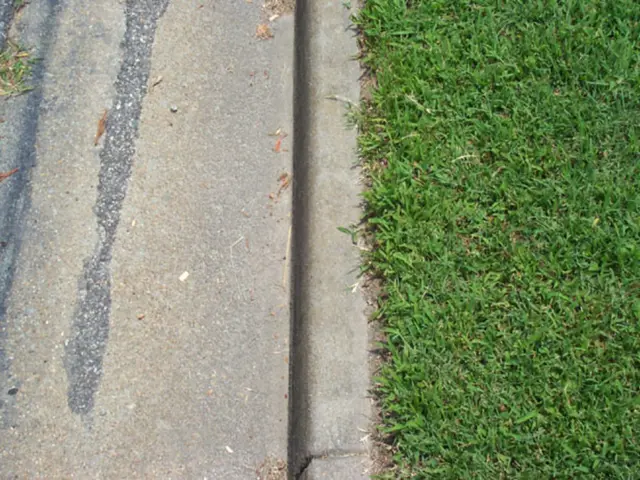Exploring Potential Remedies for C3 Glomerulopathy (C3G)
Got Questions about C3 Glomerulopathy? Here's the Lowdown!
C3 Glomerulopathy (C3G) is a rare kidney condition that impacts around 2-3 folks out of every million. It causes a buildup of protein in your kidneys' filtering tissues, which can lead to impaired kidney function and eventually, kidney failure.
As there's no cure for C3G, treatment starts with strategies to support kidney health. Immunosuppressive drugs are often recommended to keep the immune system in check. Forward-thinking treatments for C3G are focusing on the proteins responsible for the disease's activity.
The Nitty-Gritty of C3G
C3G occurs when parts of the immune system become hyperactive, thanks to some genetic changes. These genetic mutations lead to an overabundance of the C3 protein, which then forms deposits in the kidney, causing damage to the glomeruli.
In addition to genetic changes, most people with C3G carry antibodies that mess with the immune system's regular function. While there are genetic links between family members with the condition, the genetic changes in C3G are not thought to be strictly inherited.
Current treatments for C3G can't reverse or prevent the condition. The goal is to slow down kidney damage. Guidelines provided by the Kidney Disease: Improving Global Outcomes (KDIGO) organization suggest using supportive interventions to slow and prevent kidney damage, and immunosuppressive therapies when kidney function declines.
Medications for C3G
Lowering Your Blood Pressure
ACE inhibitors and Angiotensin Receptor Blockers (ARBs) are medications that help lower your blood pressure and prevent protein leakage through your kidneys.
Immunosuppressants
Mycophenolate Mofetil (MMF) and glucocorticoids are immune-suppressing drugs that doctors may recommend if your kidney function is declining for at least 6 months or if you show signs of progression.
Complement Inhibitors
Complement inhibitors block the complement system's activity, helping to slow kidney damage. These medications may be suggested when immunosuppressants don't work. For instance, eculizumab and ravulizumab are monoclonal antibodies that block the activity of the complement system's terminal pathway, the last step that triggers cell death.
Dietary Tips
Eating the right foods can help lighten the load on your kidneys by:
- Reducing sodium, potassium, and phosphorus
- Balancing protein and healthy fat levels
- Carefully managing fluid intake
A dietitian can help create a kidney-friendly diet plan while ensuring you still get enough nutrients.
New and Noteworthy
New treatments for C3G are targeting different parts of the complement system, aiming to disrupt the sequence of events leading to C3 activation or breakdown, ultimately reducing the damage to your kidneys.
Some upcoming treatments include:
- Pegcetacoplan (APL-2) – Another complement inhibitor being tested for its potential in treating C3G
- ARO-C3 – A C3 inhibitor from Arrowhead Pharmaceuticals
Recent advancements, like the FDA-approved iptacopan (Fabhalta) by Novartis in March 2025, mark milestones in the fight against this rare kidney disease. The focus is on developing targeted therapies to improve patient outcomes.
Stay tuned for more exciting developments in the world of C3G treatment! 🔬🎉
- C3 Glomerulopathy (C3G) is an uncategorized kidney disease that impacts about 2-3 individuals per million.
- The condition causes a buildup of protein in the kidneys' filtering tissues, leading to impaired kidney function and potential kidney failure.
- C3G occurs due to hyperactivity in parts of the immune system, triggered by certain genetic changes that cause an overabundance of the C3 protein.
- These genetic mutations result in deposits forming in the kidney, causing damage to the glomeruli.
- Most people with C3G carry antibodies that interfere with the immune system's regular function.
- There are genetic links between family members with the condition, but the genetic changes in C3G are not believed to be strictly inherited.
- Current treatments for C3G aim to slow down kidney damage rather than reverse the condition.
- The Kidney Disease: Improving Global Outcomes (KDIGO) organization recommends strategies like supportive interventions and immunosuppressive therapies to manage the condition.
- ACE inhibitors and Angiotensin Receptor Blockers (ARBs) are used to lower blood pressure and prevent protein leakage through the kidneys.
- Immunosuppressive drugs like Mycophenolate Mofetil (MMF) and glucocorticoids may be recommended when kidney function is declining for at least six months or there are signs of progression.
- Complement inhibitors block the complement system's activity and can be suggested when immunosuppressants don't work.
- Eating the right foods can lighten the load on the kidneys by reducing sodium, potassium, and phosphorus, balancing protein and healthy fat levels, and carefully managing fluid intake.
- A dietitian can help create a kidney-friendly diet plan that ensures proper nutrient intake.
- New treatments for C3G are targeting different parts of the complement system to disrupt the sequence of events leading to C3 activation or breakdown and reduce kidney damage.
- Some upcoming treatments include Pegcetacoplan (APL-2) and ARO-C3, which are complement inhibitors.
- Recent advancements like the FDA-approval of iptacopan (Fabhalta) by Novartis mark significant strides in the fight against this rare kidney disease.
- The focus is on developing targeted therapies to improve patient outcomes and there are exciting developments expected in the world of C3G treatment.








